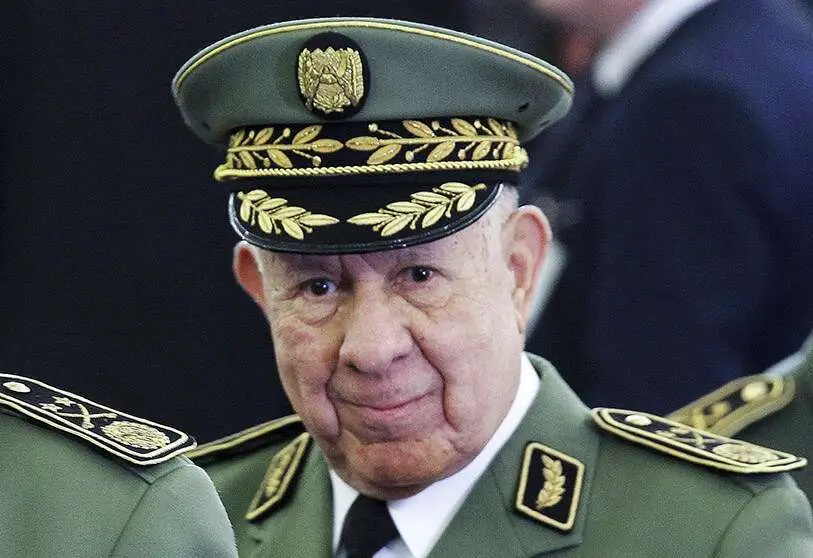Sad weapons if not words

While Algeria denounced to the UN an alleged aggression against Algerian vehicles in Moroccan sovereign territory, the international community wondered why these devices were present in an area that was under the surveillance and protection of the FAR (Royal Armed Forces).
The Algerian Military Junta, which had failed in the El Guergarat crossing with Polisario troops, has thus invented another theatrical scenario as an additional ingredient to threaten peace in the region, avoid dialogue and thus delay its own implosion.
Indeed, Algeria is said to have orchestrated the story of the "trucks" and then ordered its press to maintain the discourse of hatred against Morocco and create a pre-war atmosphere to divert public attention from the evidence of its failure on the Sahara issue. Proselytising along the lines of the Polisario separatist band when it allegedly broke the ceasefire a year ago by communicating false war reports worthy of a lousy theatrical performance.
Algeria has been at war with Morocco since 1975. The battles, called Amgala I and Amagala II, were historic because of the direct participation of the Algerian army in both battles. Battles with bitter defeats and many hostages, among them the current Algerian military leader, Said Chengriha, who is responsible for the cataclysm that the country is suffering today, due, among other things, to his revanchist and personal attitude. An unhealthy revanchism inherited from his predecessors, who were also defeated in the War of the Sands (1963).
Algeria is the Polisario and the Polisario is Algeria, actor and instigator of the pseudo-conflict in the Southern Provinces of the Kingdom. And it has not hesitated to break off relations with Morocco, close its airspace to its aircraft, accuse it of attacking Algerian trucks and cut the Maghreb-Europe gas pipeline through Morocco to divert it to the Medgaz, direct to Almeria, but not very competitive in technical and economic terms. An irrational decision, which adds to an accumulation of nonsense, with the aim of influencing Spain's foreign policy towards the Maghreb by managing the gas tap and its price as it pleases. A cutback without major consequences for Morocco, a country that is almost self-sufficient and considered Africa's leader in green energy according to the MIT Technology Review.
The military dictatorship is isolating itself internationally and weakening in all respects, although its ties with Iran are growing closer. It has lost the diplomatic battle to the Kingdom of Morocco, which, in a masterfully designed global strategy, has managed to shore up its influence and regional leadership, as well as its pacifist and dialogue-oriented character. An effort recognised by the international community and which the UN Security Council (SC) has just endorsed by adopting the only possible political solution, proposed by Morocco, which is the autonomy of the Southern Provinces under the sovereignty of the Kingdom. A solution also applauded by the pro-Polisario Saharawi diaspora, which watches helplessly as the Polisario-Algerian rejection of the negotiating table.
A refusal that confirms their defeat and poses two serious problems for the "generals": one, the Polisario paramilitaries, and two, the very continuity of the Algerian regime. This is how the Polisario has become an 'Alien', a foreign and armed body within Algerian territory. And, on the other hand, the military junta, presided over by Chengriha, whose days could be numbered in the face of the discontent of the military itself. An army suffering from serious internal strife and desertions, with no real war experience and with the international community against it. And, most importantly, without popular support, as the Algerian population is socially fractured and has never accepted the fallacy of its military's accusations against Morocco, nor understood how an external issue could have driven the country into extreme poverty.
In this context, Algeria has all the necessary ingredients to lose a hypothetical war with Morocco. And a military implosion is far more likely than open war with a neighbour that wants nothing more than good neighbourliness, peace and prosperity. So a war in North Africa is out of the question, as it would mean the end of Algerian totalitarianism, which the "generals" are not willing to lose. So the UN-sponsored dialogue would be a negotiated solution, with no losers and no winners.
It is time for the Algerian "generals" to reflect on their continuous failures over the past 46 years and assume their political responsibilities for not having a national project, for having failed in their attempt to gain access to the Atlantic by using the Polisario as a Trojan horse, for having slowed down the development of the Arab Maghreb Union (AMU) and for having turned a rich country into a poor one on the brink of the precipice.
Algeria does not seem to measure the gravity of its decisions affecting its own population and the risks they represent for the region, knowing that it will not obtain any concessions with regard to the southern provinces of the Kingdom, whose Moroccan nature is being internationally recognised.

